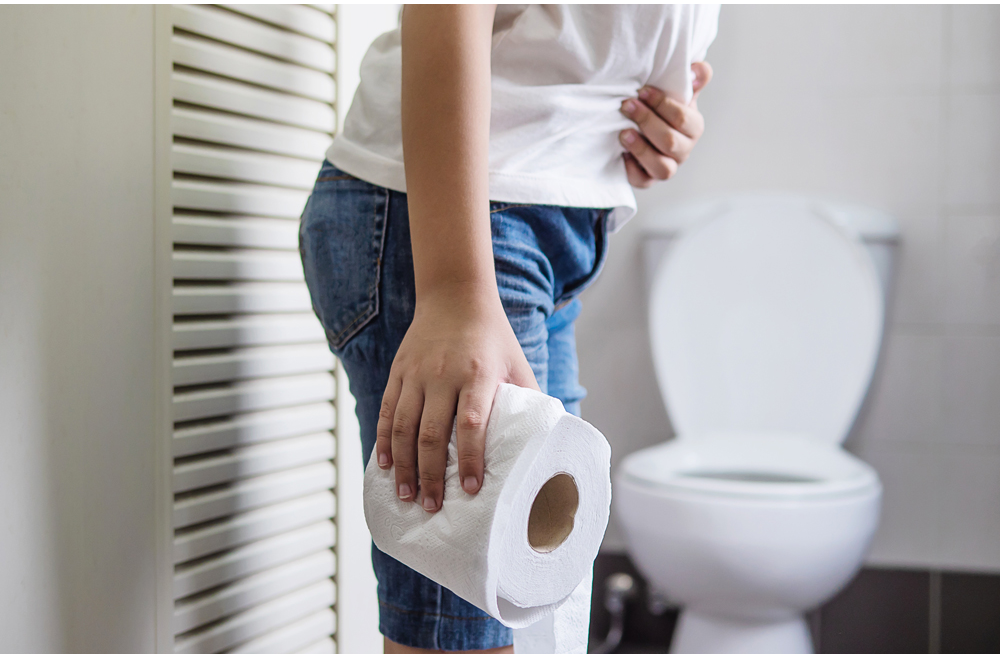Constipation

Constipation disorder of the intestinal function characterized by a slowing of the transit and by a decrease of the frequency of the evacuation of the feces.
Constipation occurs when fecal matter has been in the intestine for too long. As a result, stools contain overdigated residues. Materials, usually dehydrated, can also be over-hydrated, due to excess secretions caused by irritation of the colon. There is then a false diarrhea, which may alternate with constipation properly so called. Symptoms vary from one subject to another: unpleasant and more or less permanent sensation of bloating of the abdomen, discomfort of defecation, impression that the rectum is not empty after the saddle, etc. However, the most common and generally sufficient criterion is the rarity of stool emission (less than three stools per week).
Constipation can be the symptom of a disease. In particular, constipation that appears and persists for several weeks in a person over forty or fifty years of age requires colonoscopy (examination of the colon by endoscopy).
But, most often, the cause is benign: diet low in liquids or fibers, small psychological disturbances, absorption of certain drugs.
Treatment, essentially dietetic, is to bring enough fluids to the body and to adopt a balanced, high-fiber diet. Sport can also be beneficial, at least some physical activity (daily walk for a senior or regular gym exercises to strengthen the abdominal muscles). Laxative medicines, which accelerate intestinal transit, are very effective, but their prolonged or repeated use is discouraged.
SYMPTOMS
• HARD STOOLS
• DIFFICULTY DEFECATING
• SLOWED STOOL FREQUENCY
HEALTH RECOMMENDATIONS
Diet
A lack of fibres in the diet is one of the main causes of constipation complaints. To correct the situation, privilege fresh fruits, raw vegetables and whole grain cereals. If desired, grounded flax seeds and oat bran can be added to the diet to further increase fibre intake. An adequate fibre intake increases stool volume, thereby stimulating bowel movement as the intestines feel full. Good fats are indicated as they will help lubricate the gastrointestinal tract. Best sources of good fats include fish, flaxseed, hemp, olive, safflower, sunflower and canola oils. Varying the sources of good fats is yet the ideal situation to benefit from a diversity of nutrients.
Hydration
Dietary fibres should be thoroughly hydrated. It allows them to inflate properly and favour intestinal transit. In order to optimize fibre inflation, drink 2 to 3 litres of water daily. The key to a proper hydration is drinking regularly. Drinking 2 litres in a 2-hour period is not as beneficial as spreading drinking throughout the day. The body will appreciate regular hydration.
Physical exercise
Regular physical activity improves intestinal transit. All exercises are helpful. However, running is considered the best exercise for stimulating bowel movement. Whatever the exercise you choose (walking, running, swimming or cycling), it is important to do it 3-4 times a week, for 30 minutes each time.
Basic advice
When you feel the urge, do not delay. The more the stools remain inside the colon, the more they become dry and hard to evacuate. Do not use stimulant laxatives in the long term; they can make the intestines lazy and aggravate constipation when we discontinue use.




Comments
Leave your comment